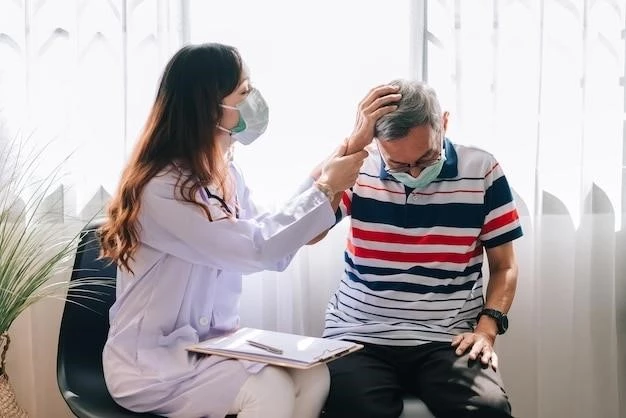Overview of Akaba-Hayasaka syndrome
Akaba-Hayasaka syndrome is a rare genetic disorder characterized by...
Description and Background
Akaba-Hayasaka syndrome is a complex genetic condition marked by a range of physical‚ cognitive‚ and behavioral challenges. It was first identified by researchers Akaba and Hayasaka in 2010‚ adding to the understanding of rare genetic disorders.
Symptoms and signs of Akaba-Hayasaka syndrome
The syndrome presents with a variety of common symptoms...
Common Symptoms
Common symptoms of Akaba-Hayasaka syndrome include developmental delays‚ intellectual disability‚ speech and language impairments‚ distinctive facial features‚ and behavioral challenges. Individuals may also exhibit physical anomalies and sensory processing difficulties‚ contributing to the complexity of the syndrome.
Physical Manifestations
Individuals with Akaba-Hayasaka syndrome may exhibit physical features such as microcephaly‚ low-set ears‚ ptosis‚ brachycephaly‚ and clinodactyly. Additionally‚ musculoskeletal anomalies‚ cardiac defects‚ and gastrointestinal issues are common among affected individuals‚ contributing to the diverse clinical presentation of the syndrome.
Cognitive and Behavioral Symptoms
Individuals with Akaba-Hayasaka syndrome may experience cognitive impairments‚ including intellectual disability‚ learning difficulties‚ and executive function challenges. Behavioral symptoms such as hyperactivity‚ anxiety‚ and social communication deficits are also common features of the syndrome‚ impacting daily functioning and social interactions.
Causes and risk factors of Akaba-Hayasaka syndrome
The syndrome is primarily caused by genetic abnormalities...
Genetic Component
Akaba-Hayasaka syndrome is primarily linked to genetic mutations affecting the NIN gene‚ located on chromosome 14. These mutations disrupt normal cellular functions‚ leading to the characteristic symptoms and manifestations observed in individuals with the syndrome.
Environmental Triggers
While the primary cause of Akaba-Hayasaka syndrome is genetic‚ environmental factors may modulate the expression and severity of symptoms. Factors such as maternal health‚ prenatal exposures‚ and early childhood environment can influence the clinical presentation and progression of the syndrome.
Risk Factors
The main risk factor for Akaba-Hayasaka syndrome is the presence of specific genetic mutations‚ particularly affecting the NIN gene. Additionally‚ advanced paternal age has been suggested as a potential risk factor for the development of this rare genetic disorder.
Diagnosis and testing for Akaba-Hayasaka syndrome
Accurate diagnosis often involves genetic testing and clinical evaluation...
Clinical Evaluation
Diagnosis of Akaba-Hayasaka syndrome involves a detailed clinical evaluation‚ including physical examination‚ developmental assessments‚ and cognitive testing. Healthcare providers may also analyze the individual’s medical history and family history to better understand the symptoms and manifestations associated with the syndrome.
Genetic Testing
Genetic testing plays a crucial role in confirming the diagnosis of Akaba-Hayasaka syndrome. This includes molecular genetic testing to identify mutations in the NIN gene on chromosome 14. Additionally‚ chromosomal microarray analysis and other genetic tests may be conducted to characterize the genetic abnormalities associated with the syndrome.
Other Diagnostic Procedures
In addition to genetic testing‚ individuals with suspected Akaba-Hayasaka syndrome may undergo imaging studies such as MRI or CT scans to assess brain structure and function. Laboratory tests to evaluate organ function and developmental assessments may also be utilized in the diagnostic process to provide a comprehensive evaluation of the individual’s health and development.
Treatment options for Akaba-Hayasaka syndrome
Management involves a multidisciplinary approach...
Medical Interventions
Medical interventions for Akaba-Hayasaka syndrome focus on managing symptoms and associated conditions. This may include medications to address behavioral challenges‚ early intervention services for developmental delays‚ and treatment for any physical health issues that may arise. Regular monitoring by healthcare professionals is essential to optimize care.
Therapeutic Approaches
Therapeutic approaches for Akaba-Hayasaka syndrome encompass various interventions tailored to individual needs. These may include speech and occupational therapy‚ behavioral interventions‚ special education services‚ and social skills training. Early intervention and structured support programs play a crucial role in improving the overall well-being and quality of life for individuals with this syndrome.
Supportive Care
Supportive care for individuals with Akaba-Hayasaka syndrome involves a holistic approach to address their physical‚ cognitive‚ and emotional needs. This may include family counseling‚ caregiver support‚ access to community resources‚ and coordination of care among healthcare providers to ensure comprehensive support for both the individual with the syndrome and their families.

Prognosis and outlook for individuals with Akaba-Hayasaka syndrome
The prognosis and outlook for individuals vary depending on...
Short-term Prognosis
The short-term prognosis of Akaba-Hayasaka syndrome focuses on symptom management‚ early intervention services‚ and establishing a comprehensive care plan. Close monitoring by healthcare providers and access to supportive services play a critical role in optimizing outcomes in the immediate period following diagnosis.
Long-term Outlook
The long-term outlook for individuals with Akaba-Hayasaka syndrome involves ongoing care‚ multidisciplinary interventions‚ and support services to optimize quality of life. Educational and vocational support‚ social skills training‚ and access to community resources can enhance independence and well-being throughout the individual’s lifespan‚ promoting long-term adaptation and overall functioning.
Quality of Life Considerations
Quality of life considerations for individuals with Akaba-Hayasaka syndrome emphasize personalized care plans‚ social integration‚ and ongoing support to enhance overall well-being. Addressing physical‚ cognitive‚ and emotional needs‚ promoting independence‚ and fostering a supportive environment are essential for improving the quality of life and promoting positive outcomes for individuals with this syndrome.
Research advances in Akaba-Hayasaka syndrome
Recent research has focused on understanding the genetic...
Current Studies and Findings
Current studies on Akaba-Hayasaka syndrome have uncovered new genetic mutations‚ explored potential therapeutic targets‚ and investigated the impact of early interventions on outcomes. Recent findings contribute to the evolving understanding of the syndrome‚ guiding future research directions and enhancing clinical care practices for affected individuals.
Potential Future Developments
Future developments in Akaba-Hayasaka syndrome research may include the identification of novel treatment approaches‚ the expansion of support resources‚ and the implementation of personalized medicine strategies. Ongoing studies aim to deepen the understanding of the underlying mechanisms of the syndrome‚ leading to improved diagnostic tools‚ targeted interventions‚ and enhanced quality of life for affected individuals.
Support resources for individuals with Akaba-Hayasaka syndrome
Various support organizations offer assistance and guidance...
Organizations and Foundations
Notable organizations and foundations‚ such as the Akaba-Hayasaka Syndrome Foundation‚ provide valuable support‚ education‚ and resources for individuals and families affected by the condition. These organizations play a vital role in raising awareness‚ facilitating research initiatives‚ and promoting advocacy efforts to improve the lives of individuals with Akaba-Hayasaka syndrome.
Counseling and Support Groups
Counseling services and support groups tailored to Akaba-Hayasaka syndrome are essential for providing emotional assistance‚ guidance‚ and a sense of community for individuals and families navigating the challenges associated with the condition. These resources offer opportunities for sharing experiences‚ accessing coping strategies‚ and fostering connections with others facing similar circumstances.
Educational Materials and Workshops
Educational materials and workshops tailored to Akaba-Hayasaka syndrome provide valuable information‚ practical strategies‚ and insights for individuals‚ caregivers‚ and healthcare professionals. These resources aim to enhance understanding‚ promote skill development‚ and empower individuals to better navigate challenges associated with the syndrome through specialized educational content and interactive workshops.
